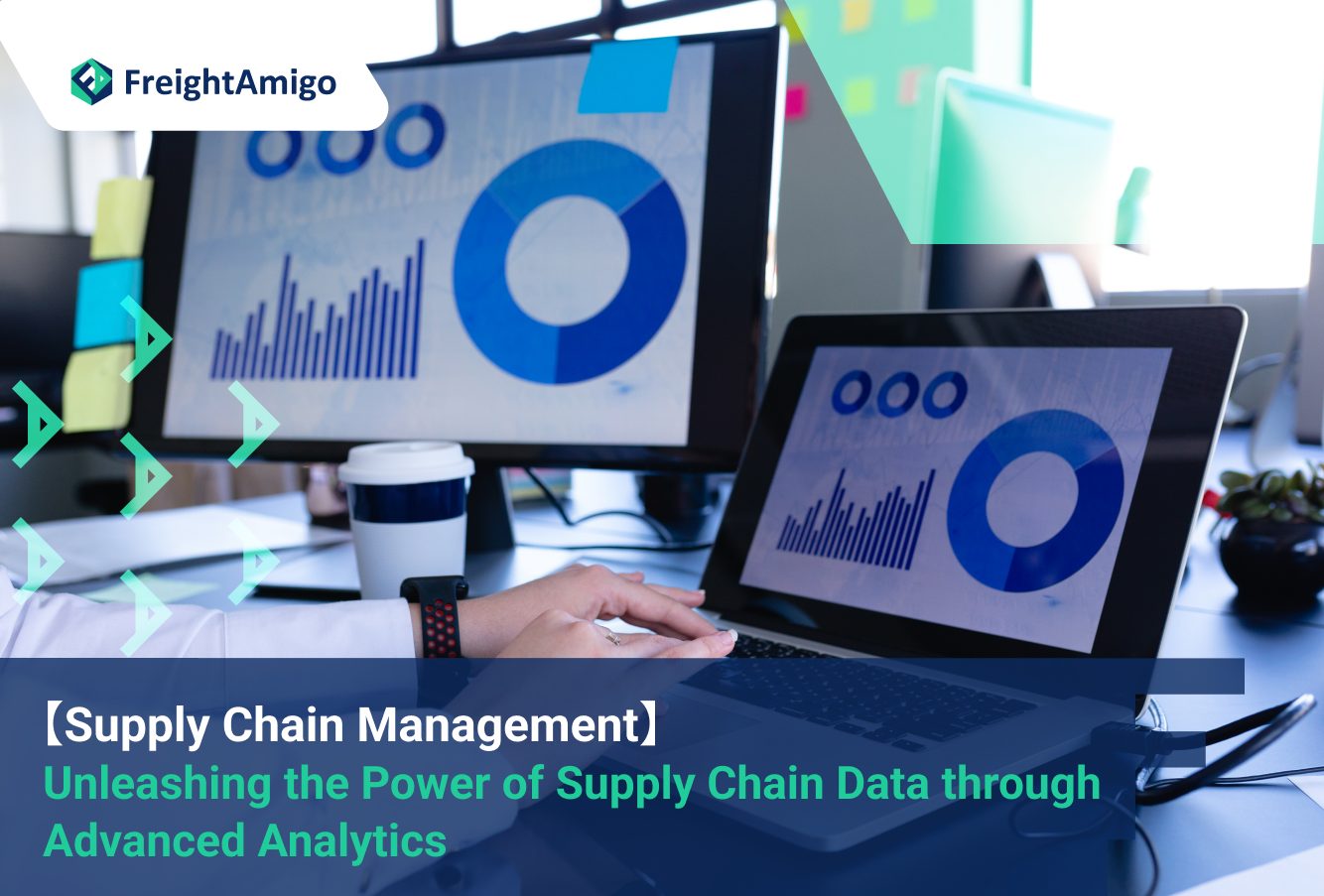Unleashing the Power of Supply Chain Data
through Advanced Analytics
Author Name: Tiffany Lee – Marketing Analyst at FreightAmigo
The global business landscape is increasingly complex, making the management of supply chains a challenging task. To stay competitive, businesses are turning to advanced analytics, particularly predictive models, to fine-tune their supply chain operations. FreightAmigo will delves into the role of supply chain data and how predictive analytics can revolutionize supply chain management.
Want To Compare The Best Express, Air Freight, Sea Freight, Rail Freight & Trucking Rates So As To Have Better Control On Cost?
Understanding Supply Chain Data and Predictive Analytics
Supply chain data is a treasure trove of information, captured at various stages of the supply chain, from procurement to delivery. It comprises a wealth of details about sales, inventory, transportation, and more. Analyzing this data can provide valuable insights into the supply chain’s performance and opportunities for improvement.
On the other hand, predictive analytics leverages historical and present supply chain data to anticipate future outcomes. It employs statistical algorithms and machine learning techniques to identify patterns in past data, thereby helping to forecast risks and opportunities.
Why Supply Chain Data is Underutilized in Predictive Analytics
Despite the potential benefits, many organizations struggle to utilize their supply chain data effectively. Here are some reasons why:
Difficulty in Accessing Data
Given the complexity of supply chains, data is often scattered across various systems and formats. Consolidating this data for analysis can be challenging, hindering the development of predictive models.
Poor Data Hygiene
The quality of data used in predictive analytics significantly influences the accuracy of predictions. However, raw supply chain data often requires substantial cleaning – standardizing fields, linking item IDs across systems, and digitizing handwritten notes – to be usable.
Insufficient Understanding of Processes
Many organizations use digital solutions that aren’t integrated with each other, resulting in a lack of understanding of the supply chain as a whole. Therefore, to generate a comprehensive picture of the workflow, it’s essential to ensure the interconnection of all business systems.
The “Set-It-and-Forget-It” Assumption
Unlike descriptive analytics that focuses on a fixed past, predictive analytics is concerned with an ever-changing future. Therefore, for predictive analytics to be effective, there needs to be a shift towards more dynamic decision-making and more robust data engineering systems capable of handling new data and quick analyses.
Use Cases of Supply Chain Predictive Analytics
Predictive analytics can revolutionize various aspects of supply chain management. Here are some common use cases:
Demand Forecasting
Predictive analytics can enable supply chain managers to anticipate customer demand accurately, minimizing inventory expenses. By identifying patterns in historical sales data, seasonal trends, and other relevant factors, predictive models can generate precise inventory requirements for different timeframes.
Logistics/Transportation Optimization
Predictive analytics can help optimize transportation networks by analyzing historical shipping data, traffic patterns, weather conditions, and other relevant factors. This leads to increased customer satisfaction, better supplier relationships, and reduced costs.
Supply Chain Risk Management
Predictive analytics models can identify patterns and trends that can help anticipate and mitigate risks before they occur. By analyzing current and historical data, potential risks can be identified and proactive measures taken to reduce exposure to those risks.
Inventory Management
Predictive analytics can help supply chain managers establish the ideal inventory level for each location to satisfy demand while minimizing costs. This allows for a reduction in both safety stock and inventory.
Pricing Optimization
Manufacturers can use predictive analytics to optimize pricing strategies by identifying ideal price points based on historical data about product sales volume at various prices and market conditions.
Transforming Supply Chain Management with Predictive Analytics
Data-driven predictive analytics can revolutionize supply chain management in numerous ways:
Faster Data Processing
Predictive analytics can process massive amounts of supply chain data in a fraction of the time it would take to do manually. This allows for more timely and accurate decision-making.
Increased Supply Chain Strategy Effectiveness
With insights gained from predictive analytics, businesses can build more effective supply chain strategies. It helps identify strengths, weaknesses, and potential risks, providing a solid foundation for strategic planning.
Effective Risk Prediction
Predictive analytics can help companies anticipate potential risks and devise strategies to address them proactively. It enables businesses to be proactive rather than reactive, ensuring smoother operations and minimizing losses.
Competitive Edge
Using predictive analytics can give businesses a competitive edge by enabling them to stay a step ahead of their competitors. It can lead to improved customer service, streamlined logistics, and boosted production performance.
All in a One-stop Platform
In conclusion, supply chain predictive analytics can transform supply chain management by enabling organizations to make data-driven decisions. It allows businesses to anticipate future trends, identify potential risks, and manage big data more efficiently. By leveraging this powerful tool, businesses can optimize their supply chain operations, enhance customer experience, and ultimately, boost their bottom line.
FreightAmigo, as a logistics, insurance, financing in one platform, leverage real-time dynamic logistics data to connect financing, insurance, and logistics The platform uses AI to integrate trade data to optimize businesses’ supply chain management and accelerate the approval process for insurance, banks and financial institutions, enhancing logistics flow, cash flow, and information flow for businesses. So, it’s time to unleash the power of supply chain data and predictive analytics to stay ahead in the increasingly competitive business landscape.
Looking for accessible solutions to streamline your operations? Connect with us today to help your business grow and thrive.
Read More:
【Predictive Modeling】 The Future of Credit Decisions in Supply Chain Operations
【Logistics Finance】 Role of Artificial Intelligence in Predictive Pricing and Revenue Management
【Emerging Technologies】 The Role of Artificial Intelligence in Freight Technology
【Benefits of Using Data Driven Credit Decisions】How to Optimize Credit Terms and Payment Policies
If you have any inquiries on logistics/supply chain, feel free to contact FreightAmigo now:
Chat with us online OR Phone : +852 28121686 OR WhatsApp: +852 27467829









































